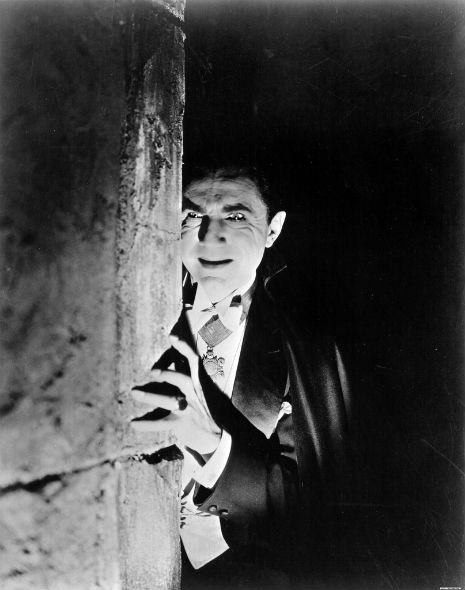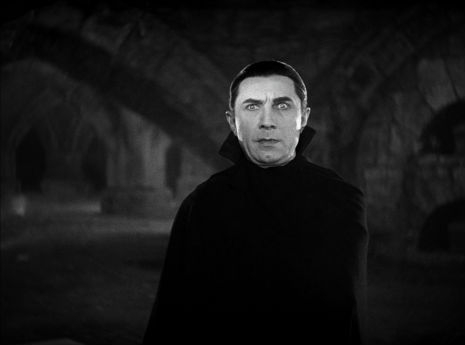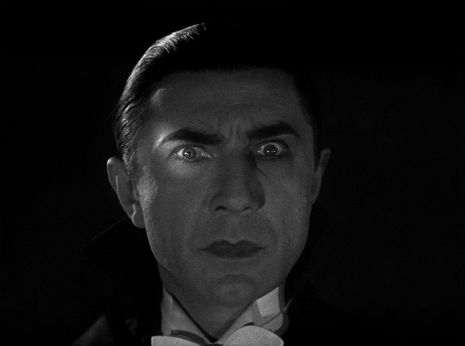
It was English character actor Raymond Huntley who first achieved success as Dracula in the famous stage production by Hamilton Deane of Bram Stoker’s classic novel in 1924. The twenty-year-old Huntley became a star taking the play from provincial tour to West End success. However, when offered to play the Count on Broadway, Huntley surprisingly turned the role down, later describing his time playing Dracula as “an indiscretion of my youth.” A strange and possibly rueful response to what in essence could have been a whole new career. Huntley’s refusal left the way open for Bela Lugosi, who made Dracula his own.
Bela Ferenc Dezso Blasko was born on October 20, 1882 in Lugos, Hungary, to a respectable and successful middle class family. Bela’s father wanted his youngest son to follow in the family tradition and take up a career in banking, but Bela ran away from home when he was twelve with the single-minded ambition of becoming an actor. Like his father the young Bela was stubborn and headstrong. Even when his father died, Bela never gave in to the family pressure to relinquish his dreams.
After years of hoping, waiting and hanging around stage doors, Bela was given a chance to learn his trade. He spent years as the spear carrier, the one liner, or the messenger sent on to develop the plot before he impressed in several Shakespeare productions, most notably as Romeo in Romeo and Juliet. This led to his being offered work with the National Theater of Hungary, which (as you can imagine) was the country’s principal theater group. Lugosi later claimed he “became the leading actor of Hungary’s Royal National Theatre,” which may or may not be true.

However, his theatrical career was drastically halted by the First World War Lugosi enlisted to fight, was wounded and spent the remainder of his service recuperating. After the war, he became politically active, helped set up an actor’s union and was then involved in the failed Hungarian Revolution, which meant he had to flee the country as a suspected radical and enemy of the state.
Lugosi traveled to Germany and eventually moved to America, where he worked with a small east coast theater company performing to fellow immigrants. His success here gave him a shot at Broadway, where he brought a seductive exoticness and great menace to the roles he played—most critically as the Arab Sheik in Arabesque, where he was compared to Valentino. But his biggest hit came when he was cast as the evil Count in Dracula. Lugosi made the dark and nefarious Count a highly seductive and erotic figure—a premeval mix of sex and death. Women fainted, men were jealous, both were equally terrified.

Surprisingly, despite Lugosi’s success on Broadway, when Hollywood decided to film Dracula, the actor was not the first choice of producer Carl Laemmle Jr. who wanted Lon Chaney to play the Count. Sadly “The Man of a Thousand Faces” died before production began, leaving Laemmle a long list of actors Paul Muni, Chester Morris, Ian Keith, John Wray, Joseph Schildkraut, Arthur Edmund Carewe and William Courtenay to consider—anyone (it seemed) but Lugosi. However, Lugosi was determined to play the Count and lobbied Laemmle for the part, eventually winning it after accepting a cut in salary.
For me, no matter who has played the role since, Bela Lugosi is the master and in many respects the definitive Count Dracula—he is the standard by which all of the other undead are judged.
As for Huntley, well, he is instantly recognizable from his many film and television appearances, where he usually played the bank manager in pin stripe suit and bowler hat, the civil servant, the untrustworthy politician, the judge passing sentence or the scientist who did things by the book, all of which makes me wonder what his interpretation of the Count was like.
This rather enjoyable documentary Bela Lugosi: Hollywood’s Dark Prince tells the story of Bela Ferenc Dezso Blasko, from rebelious childhood to Universal star and sad drug-addled demise, with contributions from Robert Wise, Martin Landau and Bela Lugosi Jr.